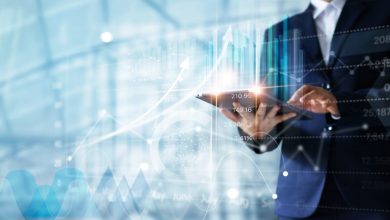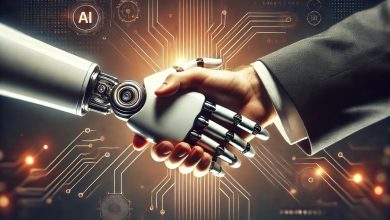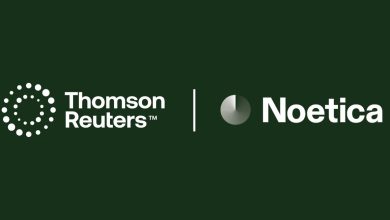
In the finance world, artificial intelligence is no longer just a buzzword. It’s quickly transforming how modern markets operate on a fundamental level, and more importantly, it’s causing a massive shift in how traders interact with them.
In a few seconds, AI can scan millions of data points and alert traders to unusual trading activity before there is even a murmur of it on the news, giving traders a new edge.
However, in this interview with AI Journ, Zak Westphal, CEO and Co-Founder of StocksToTrade, shares why technology is only as powerful as the person using it. He discusses his perspective on the changes that AI is bringing to trading, the risks of overrelying on AI, and why human judgment will always be the ultimate deciding factor.
Q1. AI is transforming industries everywhere. How is it changing trading specifically?
AI is transforming trading by drastically speeding up the rate at which information is gathered and processed. What used to take many hours of manual research now happens in seconds. We’re talking about algorithms that can scan nearly any listed stock, pull in news and sentiment from multiple sources, and read filings and social media all in real-time.
In the past, many traders missed opportunities simply because they were unable to access this data quickly enough. At least not compared to the major institutions.
Today, AI can detect even small spikes in volume or an unusual shift in sentiment before it has become a real move in the markets. In other words, AI is rebalancing the power dynamic and giving traders the ability to react much more quickly to what’s happening in the market.
Q2. Some people believe that in the future, AI could completely replace human traders. Would you agree?
I don’t believe that’s the case. AI can identify patterns, but it doesn’t know the significance of those patterns. AI can tell you that a stock is breaking out of a resistance level, but it doesn’t know if the company is planning layoffs or if that stock aligns with the risk in your portfolio. At least not yet.
Trading isn’t just about finding opportunities; trading also requires making decisions in an uncertain world. Those decisions require judgment, discipline, and sometimes even gut instinct. And yes, while AI can assist with judgment, ultimately, it is the trader who must make decisions on which path to take.
Q3. What risks come with introducing AI into retail trading?
The main risk I see from the trader’s perspective is having false confidence. AI tools are powerful, but if you don’t understand how they work or why it has given you a specific output, then you’re more likely to assume that it is always right. That can be dangerous.
People don’t want to perform manual checks and extra due diligence when they can simply read what a scanner says and enter into a trade. However, I believe this extra effort is what will separate the best from the rest.
There is also the risk of bias. Algorithms are trained on data and can mislead you if it is skewed or incomplete, which is a potential problem. A model might favor certain types of setups simply because that is what it has seen the majority of the time. Traders need to recognize that limitation.
And finally, there is a psychological element. When traders outsource too much to automation, they stop honing their own skills. Then, when an unexpected market event occurs, they suddenly find themselves unable to react appropriately.
Q4. What gives StocksToTrade a unique balance of AI compared with other platforms?
Many platforms only focus on providing signals. They appear on your screen, give a brief amount of information, and then disappear. The question is, if you don’t know what’s causing a stock to move, how can you make any real guess of what direction it’s going to go next?
We take a different approach by pairing education with AI. The Oracle Scanner and IRIS Analytics are designed to deliver not only opportunities, but also the context behind them. Is it breaking news, unusual volume, or a shift in sentiment online? That additional context helps traders learn as they trade.
Education is the thing that keeps people in the markets long-term if traders understand the “why,” they will gain confidence and continue to hone their skills. If they don’t know the “why,” they risk quitting after a few bad trades. For me, the value in AI is not just speed, it’s in how it becomes a teaching tool that makes traders smarter with every use.
Q5. Looking to the future, where do you envision AI impacting fintech over the next five years?
The next evolution will be in personalization. Currently, AI scans the market for everyone in the same way. But in the future, it will adapt to each trader, learning their risk tolerance, favorite setups, and even trading hours. It will feel less like a search engine and more like a trading partner that knows your style.
I also see explainability becoming more critical. Regulators, investors, and traders will demand to know how algorithms reach their conclusions. Fintech companies that can provide that transparency will win trust. Those who can’t will fall behind.
Another thing to consider is that AI will attract new players from a global perspective. In emerging markets, where mobile adoption is high, having AI-driven platforms will democratize trading at scale. There might be a trader from Lagos or Jakarta who has the same scanning capabilities as a desk in Wall Street. At least, that’s the future I would like to see.




